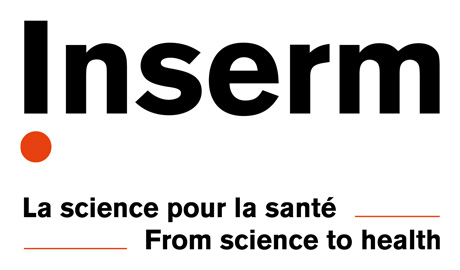





Type of contract
Location Poitiers,
Statut Recrutement en cours
Key Words
Details of the offer
Type of job
Type of contract
Application deadline
Employment start date
Job Information
Organisation/Company: Université de Poitiers
Research Field:
Biological sciences » Biology
Medical sciences » Health sciences
Neurosciences » Neurophysiology
Researcher Profile: First Stage Researcher (R1)
Country: France
Application Deadline: 5 May 2023 - 12:00 (Europe/Paris)
Type of Contract: Temporary
Job Status: Full-time
Offer Starting Date: 1 Oct 2023
Is the job funded through the EU Research Framework Programme? Not funded by an EU programme
Is the Job related to staff position within a Research Infrastructure? No
Offer Description
This PhD will take place within the PRéTI laboratory, well recognized for its strong expertise in cardiac physiology and electrophysiology localized at Poitiers University (Poitiers, France)..
The candidate will be supervised by Aurelien Chatelier, leader of the research axis Arrhythmias and Conduction Interfaces of the PRéTI laboratory.
Project:
Voltage gated sodium channels (VGSC) are major players of cellular excitability. Amongst them, Nav1.5 represent the major cardiac isoform which controls action potential initiation and propagation in the myocardium. Nav1.5 mutations have long been recognized to account for abnormalities of cardiac electrophysiology observed in Brugada syndrome (BS) or long QT type 3 (LQT3). The autonomic nervous system is suspected to be an important modulator of electrical disorders observed in this pathology. Interestingly, the final common pathway for cardiac neuronal autonomic control resides in the intrinsic cardiac nervous system, composed of intracardiac neurons (ICN). However, the influence of the intracardiac nervous system in the occurrence of these life-threatening arrhythmias has not yet been considered although ICN are now well known to efficiently modulate cardiac excitability. The purpose of the project is to characterize the properties of the sodium permeability in these neural cells and to elucidate how their mutations may contribute to ICN electrophysiological perturbations and potentially to cardiac channelopathies. To reach this goal, we will use several approaches consisting in cellular electrophysiology, molecular biology and biochemistry on mouse models. This will allow us to target specifically i) the characterization of expression and biophysical properties of VGSC expressed in ICN , ii) the characterization of the molecular and functional impact of VGSC modulations on ICN electrophysiological properties and iii) the assessment of structural remodeling of the intracardiac nervous system in the context of channelopathies such as BS. The global and quite innovative objective of this project is to decipher how the ICN may participate to, modulate or control cardiac arrhythmias in sodium channelopathies.
Requested knowledge and skills:
The recruited person must have knowledge of electrophysiology and cardiovascular and neuronal physiology. A previous internship experience in one of these areas would be appreciated.
The recruited person must also have good theoretical and if possible practical knowledge in the patch clamp technique, in molecular biology and in biochemistry.
The successful applicant must also have the willingness and enthusiasm to work independently while being able to communicate with the various scientists involved in
this project. The ideal candidate should be curious, and should enjoy solving problems and developing new
technologies with personal creativity and innovation.
Requirements
Research Field: Biological sciences » Biology
Education Level: Master Degree or equivalent
Research Field: Neurosciences » Neurophysiology
Education Level: Master Degree or equivalent
Research Field: Medical sciences » Health sciences
Education Level: Master Degree or equivalent
Skills/Qualifications
The recruited person must have knowledge of electrophysiology and cardiovascular and neuronal physiology. A previous internship experience in one of these areas would be appreciated.
The recruited person must also have good theoretical and if possible practical knowledge in the patch clamp technique, in molecular biology and in biochemistry.
The successful applicant must also have the willingness and enthusiasm to work independently while being able to communicate with the various scientists involved in this project. The ideal candidate should be curious, and should enjoy solving problems and developing new technologies with personal creativity and innovation.
Additional Information :
Work Location(s)
Number of offers available: 1
Company/Institute: University of Poitiers, PRéTI Laboratory
Country: France
Where to apply
E-mail: aurelien.chatelier@univ-poitiers.fr
Contact
City: Poitiers
Website: https://preti.labo.univ-poitiers.fr/
Street: 1 rue Georges Bonnet - Postal Code: 86073